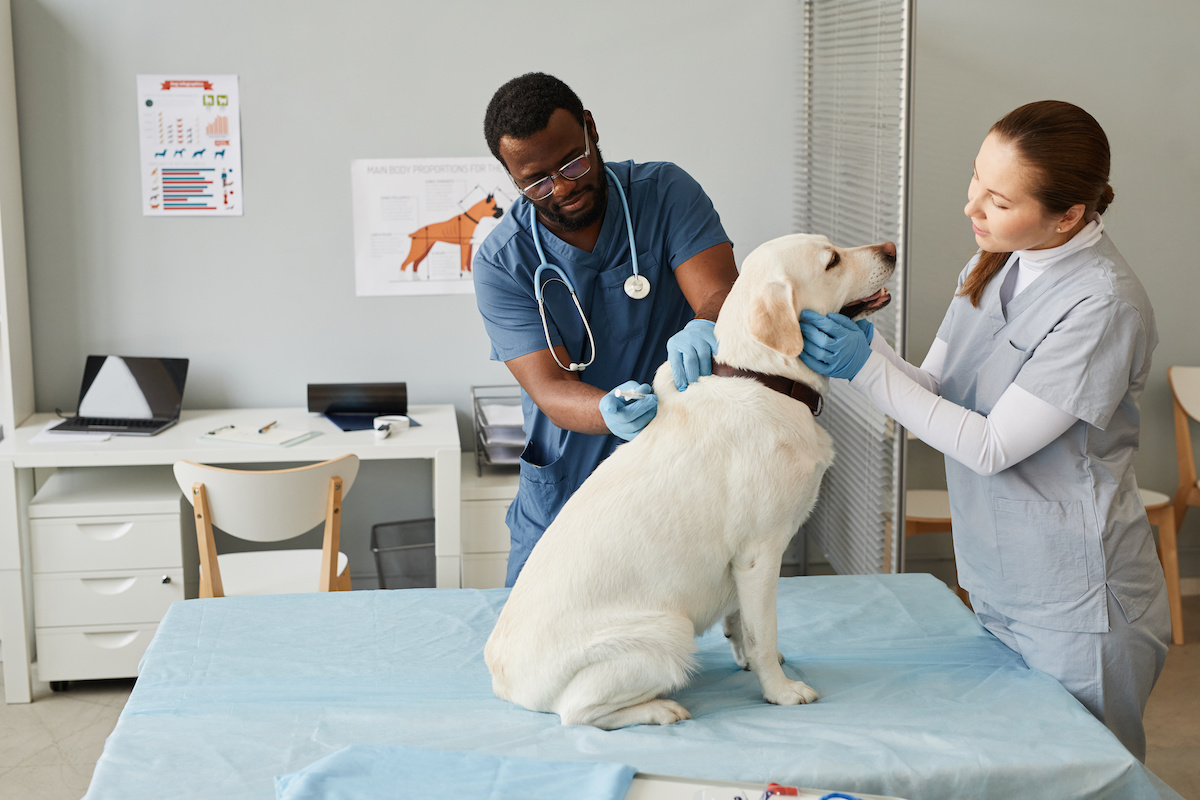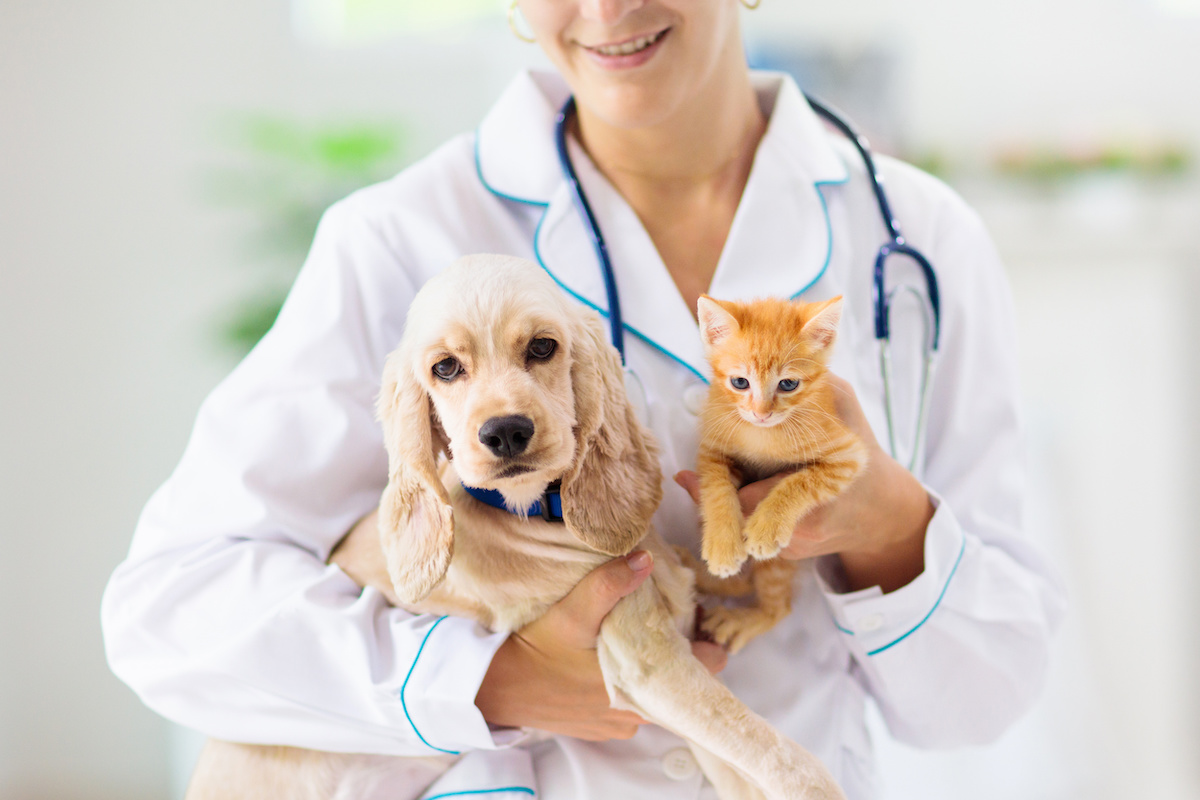Regular veterinary check-ups are an essential aspect of keeping pets healthy and ensuring their overall well-being. For pet owners, making the time for these routine visits is one of the most important responsibilities they can fulfill. Just as people benefit from preventive health care, our pets require regular vet check-ups to maintain optimal health, detect potential health issues early, and extend their lifespan.
In this article, we’ll explore the benefits of regular vet check-ups, what pet owners can expect during these visits, and why they are critical for your pet’s happiness and longevity.
Early Detection of Health Problems
One of the primary benefits of regular veterinary check-ups is the early detection of health problems. Pets, particularly cats and dogs, can be excellent at hiding symptoms of illness. By the time a pet owner notices something is wrong, the problem could have progressed into a more serious or even life-threatening condition.
Regular vet visits allow veterinarians to perform thorough physical examinations and conduct routine diagnostic tests that can identify potential issues before they become severe.
Common issues such as dental disease, arthritis, and internal conditions like kidney or liver disease can go unnoticed for months or years if regular check-ups are not maintained. Catching these problems early can:
- Make treatment more effective
- Improve the pet’s quality of life
- Save money in the long run by avoiding costly emergency interventions
Tailored Health Plans and Preventive Care
Another significant advantage of regular check-ups is the ability to create a personalized health plan for your pet. Every pet is different, with unique needs based on its age, breed, lifestyle, and existing health conditions. Your vet can help you establish a schedule for vaccinations, parasite prevention, dental care, and weight management. By focusing on preventive care, pet owners can avoid many common health issues that arise from neglect or misinformation.
Vaccinations and parasite control are particularly important preventive measures. For instance, vaccinations help protect pets from potentially fatal diseases such as:
- Rabies
- Distemper
- Parvovirus
- Feline leukemia
Meanwhile, parasite prevention, including flea, tick, and heartworm treatments, is crucial for keeping pets safe from external and internal parasites that can cause significant harm.
A regular vet check-up is also an opportunity to receive advice on proper nutrition, exercise, and grooming. Many health problems in pets are directly related to obesity, poor diet, or lack of physical activity. Your vet can provide recommendations tailored to your pet’s specific needs to ensure they remain healthy and energetic throughout their life.

Dental Health Maintenance
Dental health is often overlooked by pet owners, but it’s a crucial part of your pet’s overall health. Poor dental hygiene can lead to gum disease, tooth decay, and serious infections that can spread to other organs in the body. Regular vet check-ups include dental examinations where the vet will assess the condition of your pet’s teeth and gums.
For many pets, professional cleanings are necessary to remove plaque and tartar buildup that can’t be managed with at-home care alone. These cleanings help prevent painful dental diseases and tooth loss. A veterinarian can also teach you how to maintain your pet’s oral health through proper brushing techniques and recommend dental care products designed for pets.
Monitoring and Managing Age-Related Conditions
As pets age, their health needs change. Senior pets are more prone to developing chronic conditions such as arthritis, diabetes, heart disease, and cognitive decline. Regular vet visits are essential for monitoring and managing these age-related conditions. Veterinarians can identify early signs of age-related issues and recommend treatments or lifestyle changes to slow the progression of these conditions.
For senior pets, it’s often recommended to increase the frequency of check-ups to ensure that any health issues are caught and managed early. Routine blood work, urine tests, and x-rays are often part of these check-ups and provide invaluable information about the pet’s internal health. Catching health problems in older pets early can make a significant difference in their quality of life and longevity.
Behavioral Assessments and Advice
In addition to physical health, regular vet check-ups are an excellent opportunity to discuss your pet’s behavior. Underlying health issues or unmet needs can cause behavioral problems, such as:
- Aggression
- Anxiety
- Inappropriate elimination
For example, a dog that is unusually irritable may be experiencing pain, while a cat that refuses to use the litter box may have a urinary tract infection.
A veterinarian can help determine if a medical condition is contributing to behavioral problems and offer guidance on managing or modifying the behavior. In some cases, behavioral issues may require specialized training or adjustments to your pet’s environment. Regular check-ups ensure that your pet’s mental and emotional well-being is addressed alongside its physical health.
Maintaining a Baseline of Health
Veterinary records from regular check-ups provide a comprehensive overview of your pet’s health history. This information serves as a valuable resource for tracking changes in your pet’s health over time. By maintaining a baseline, your veterinarian can more easily identify deviations that may signal an underlying health issue. Whether it’s fluctuations in weight, changes in heart rate, or shifts in behavior, having a documented history allows the vet to make more informed decisions about your pet’s care.
In emergencies or sudden illnesses, having a clear health record is also beneficial, as it allows the veterinarian to assess the situation more quickly and accurately. Consistent vet visits ensure that your pet’s medical records are up to date, providing peace of mind that their health is being monitored regularly.
Strengthening the Bond Between You and Your Pet
Regular check-ups not only benefit your pet’s physical health but also strengthen the bond between you and your pet. When your pet is happy, healthy, and free from pain or discomfort, it is more likely to engage positively with you and other members of your household. Knowing that you are taking the necessary steps to ensure your pet’s health can also relieve stress and worry for pet owners.
Furthermore, regular visits to the vet help your pet become more comfortable with the veterinary environment. Pets that only visit the vet during emergencies or when they’re already feeling unwell may develop anxiety or fear of the vet’s office. By making vet visits a routine and positive experience, you can reduce the stress associated with these trips, making them easier for both you and your pet.
Financial Benefits of Preventive Care
While it might seem counterintuitive, regular vet check-ups can actually save pet owners money in the long run. Preventive care is generally far less expensive than treating serious health conditions that have been left unchecked. Early detection of health problems allows for less invasive treatments, and managing chronic conditions before they worsen can prevent costly emergency care or hospitalization.
For example, treating dental disease in its early stages through regular cleanings is significantly less expensive than extracting multiple teeth or addressing infections that have spread to other parts of the body.
Similarly, keeping your pet up to date on vaccinations and parasite prevention can save you from the high cost of treating diseases such as heartworm or parvovirus, which can be both costly and life-threatening.

What to Expect During a Vet Check-Up
During a regular vet check-up, your veterinarian will conduct a thorough physical examination, checking your pet from head to tail. The vet will look at your pet’s coat, skin, eyes, ears, teeth, and gums, as well as listen to their heart and lungs. They may palpate your pet’s abdomen to check for any abnormalities and assess their overall body condition.
In addition to the physical examination, your vet may recommend routine diagnostic tests such as blood work, urine analysis, and fecal tests. These tests provide valuable information about your pet’s internal health and can detect infections, organ function issues, and other underlying problems that may not be visible during a physical exam.
Your vet will also discuss your pet’s lifestyle, diet, behavior, and any concerns you may have. This is an excellent opportunity for pet owners to ask questions and seek advice on topics such as:
- Nutrition
- Exercise
- Grooming
- Behavior management
It’s essential to be open and honest with your vet about any changes you’ve noticed in your pet’s health or behavior, as this information can help guide their recommendations.
Schedule Regular vet Check-Ups with the Animal Care Center
Regular vet check-ups are a cornerstone of responsible pet ownership and an essential component of keeping pets happy, healthy, and thriving. From early detection of health issues to preventive care and personalized health plans, routine vet visits provide numerous benefits that contribute to your pet’s overall well-being. By staying proactive with your pet’s health, you can ensure they live a long, comfortable, and fulfilling life as a cherished member of your family.
At the Animal Care Center, we’re committed to providing top-notch care for your pets. Schedule your pet’s next check-up with us today and take the first step toward a healthier future for your furry companion.






